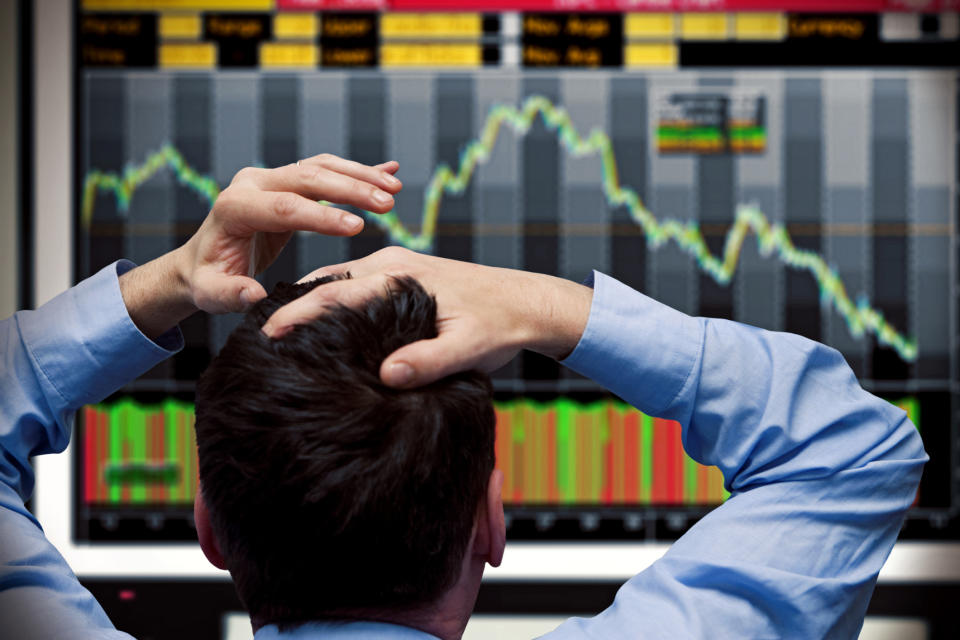It's now a CRASH: $235 billion lost in 24 hours

Australian shares, after suffering its worst single-day loss on Monday since the global financial crisis, dived again on Tuesday morning as panic gripped investors.
The benchmark ASX200 index was down 3.72 per cent at 10:12am Tuesday morning, adding to the massive 7.3 per cent – or $155 billion – loss on Monday.
The last time the Australian market lost that much value was in the midst of international financial turmoil on October 10, 2008, when it shed 8.34 per cent.
Current conditions have now hit the definition of a "bear market", with losses since February 20 exceeding 20 per cent.
Monday's panic was started by major oil-supplier Saudi Arabia sending prices into freefall after Russia failed to reach a production-cutting deal with other crude-producing nations.
While that could soon see Australian drivers paying just $1 a litre for petrol, it sent the equities market into a panic, first affecting energy and mining companies then flowing through to tech, travel and banking shares.
And after the Australian bloodbath, the same pandemonium was seen in other countries overnight. The S&P500 in the US lost 7 per cent, while Canadian shares saw the biggest drop since the infamous 1987 crash.
"It’s been a while since I saw this kind of sell-off."
Only 31 per cent of Australians directly own shares, but most people's wealth are affected by the fortunes of the stock market because of compulsory superannuation.
Founder and chief of super comparison service Roll-It Super, Mark MacLeod, told Yahoo Finance last year he estimates the average Australian super balance is $100,000.
This means the typical Australian adult could have lost more than $20,000 over the last 12 business days.
Make your money work with Yahoo Finance’s daily newsletter. Sign up here and stay on top of the latest money, news and tech news.
Follow Yahoo Finance Australia on Facebook, Twitter, Instagram and LinkedIn.

 Yahoo Finance
Yahoo Finance 